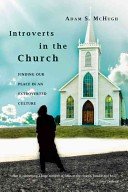There is no way I'm going to write this without sounding corny or superficial, but I'm doing it anyway. I caught a glimpse of God's love (and sense of humor) today.
Let me begin by noting that the event itself was, on God's scale of things, and even on the human scale, absolutely trivial. But any human lover knows how much love can be expressed through trivia. More disturbingly, I've experienced having trivial victories followed quickly by tragic defeats. But it is what it is, and worth reporting.
To simplify the story, there's a store at which we get what can amount to a very significant discount by using a particular credit card. The catch is that we never know what the discount will be until the purchase has been made. I've seen discounts of greater than 50%, and yet on some items it may be only a few percent, or nothing at all. Shopping at this store is my substitute for playing the state lottery: it's a thrill to "win big," but there's no point in buying something that you wouldn't pay full price for, because you might have to. Of course, you can always cancel the transaction, but I hate asking the checkout clerks to do that.
So here's what happened today. There's an item I wanted to buy, but there's no way I could justify paying full price. Still, I wanted it badly enough to grit my teeth and face cancelling the transaction just to learn what the discount would be. So this morning, on my way from the church where I had a commitment to sing, to the church where I had a commitment to get a flu shot, I stopped at the store.
As I pulled into the parking lot, I realized that I was fretting, getting tense over the idea that there might be little or no discount on this item that I really wanted, and worse, over the potential embarrassment of having to tell the clerk that despite having wasted his time and that of those behind be in line, I didn't want to make the purchase after all. The morning's excellent sermon on worry, however, was not entirely lost on me. The featured text, Philippians 4:4-8 ("Do not be anxious about anything, but in everything, by prayer and petition, with thanksgiving, present your requests to God") is one of my favorite Bible passages. So, thankful for the opportunity, I made my requests and relaxed. I know, I know. It's trivia. And most of you will have no idea why the thought of returning a purchase is so stressful for me. But it is, and I know some of my readers will nod their heads with understanding.
I never did find out what the discount would have been. But not because I wimped out at the last minute.
Having found the correct department, I pulled out my notes to ascertain the correct model number. To my dismay I realized that I had neglected to write down that crucial piece of information. Ah, not to worry; I was pretty sure I could figure it out. Sure enough, I picked out what looked to be the right model, and if I'd had any doubts, they were removed when I noticed that this model, out of all the models and manufacturers on display, was the only one on sale, and the cost was just thirty percent of the regular price. A seventy percent discount! Our credit card at its best is never that good. I stood there in awe for a few minutes; when I came back to earth, I bought two!
No, it wasn't anything earth-shattering, or even important. But it was the unmistakable touch of a lover's hand that says, "I am here"; the completely unexpected, simple gift that proclaims, "I love you." And maybe, perhaps, "You can trust me through the dark and doubtful times, also."
Permalink | Read 2366 times | Comments (2)
Category Random Musings: [first] [previous] [next] [newest] Everyday Life: [first] [previous] [next] [newest]

For three years I have been considering joining the crowd that participates in Conversion Diary's "7 Quick Takes Friday." It's a handy way to gather together random ideas that are cluttering up the backblog and/or are too short to make into posts of their own, and because it links back to the other participants, I get involved in a larger community. Which is probably why it took an introvert like me three years to take the plunge.
We've been watching How to Look at and Understand Great Art from The Great Courses (formerly The Teaching Company). I'll review it after we have completed the course, but already we are thrilled. I don't know how anyone can graduate from high school without this kind of knowledge, but I did—and I was valedictorian.
Do you know how Google Translate works? It's very clever. I would never have guessed, but thanks to the folks at Little Pim, I know there's magic involved—well, Harry Potter, anyway.
Rather than try and do any actual translating itself, Google Translate figures that someone else has probably already done the hard work for you. Google uses its incredible computing power to trawl through the vast swathes of human translation work, and pairs your English sentence with a human-translated equivalent. ... Whenever you ask Google to translate a sentence, it draws on vast archives of translated text, including everything the UN and its agencies have ever done in writing in six official languages. ... This is why books like Harry Potter are so useful. With translations in 67 languages, Harry Potter provides an excellent frame of reference for Google Translate to draw upon. While there may be no recorded history of direct translation between Hebrew and Welsh, by running both translations through the hub of the original English text, Google can attempt a direct translation.
I took the Front Porch Republic out of my feedreader's A-list because I simply couldn't keep up. Fortunately, they send me occasional e-mails with their top posts, so I didn't miss Allan Carlson's The Family Centered Economy.
American writer and social critic Wendell Berry was born just three years before Russian agricultural economist Alexander Chayanov died in the Soviet Gulag; Russian-American sociologist Pitirim Sorokin was born at the same time as Chayanov but outlived him by 30 years. The insights of these three men lead Allan Carlson to suggest seven social changes that are sure to inspire and infuriate. Who (besides me) would have thought that the secret to a healthy economy would involve homemaking, homeschooling, micro-business, small-scale farming, breastfeeding, and large families?
My family is tired of hearing me preach about the wonders a nightly xylitol rinse has done for my teeth and gums. I find the dental profession in general remarkably incurious about this inexpensive and pleasant dental health aid, but here is some encouraging news, in both the linked article and other articles under "Related Stories." The stories are depressingly old (2007/2008), but this paper says that the American Academy of Pediatric Dentistry has supported "the use of xylitol as part of a preventive strategy aimed specifically at long term caries pathogen suppression and caries ... reduction in higher risk populations" since 2010. Ask your dentist.
Last Saturday we enjoyed the Orlando Philharmonic Orchestra's season-opening concert, Puccini é Verdi, a presentation of excerpts from the two composers' great works. Music Director Christopher Wilkins certainly knows how to draw a sell-out crowd to begin the season with great enthusiasm: feature the University of Central Florida Chorus and the Florida Opera Theatre Chorus and you're bound to draw many of their friends as well.
What impressed me the most about the production was how well it was staged. The stage was structured so that the soloists, rather than waiting their turns stiffly on front-and-center chairs, made their entrances through the orchestra as they were singing. It wasn't a complicated setup, and added much to the effect.
Crime is down, way down. Everyone from Free-Range Kids to the New York Times to our local police department is telling us so. Why, then, is fear up? Here's my take on the subject:
Certainly the relentless, sensationalist, sponsor-driven news coverage of any tragedy, no matter how remote, is to blame. Even worse, however, are regular television shows. (Books, too, but TV is more graphic.) Face it: a kid walking safely to school does not make for an exciting story. So what do we see? Lots and lots of crime. Kidnappings, murders, rapes, dismemberments, terrorism, torture, lots of car chases and bullets spraying. Twisted neighbors, abusive family members, corrupt cops.
We know it’s fiction, but the sounds, sights, and terror have an impact on our brains we cannot control. Bare statistics about crime are no match for the horrors that our gut knows surround us—because we have seen them.
What do you think?
For more Quick Takes, visit Conversion Diary!
Permalink | Read 2753 times | Comments (7)
Category Random Musings: [first] [previous] [next] [newest]

Shakespeare: The World as a Stage (Harper Perennial, London, 2007) by Bill Bryson
Once again, a hit for Bill Bryson. (Thanks, Stephan! You'll get the book back in January.) This time he tackles, with his usual wit and excellent writing, what we know (and, importantly, what we do not know) about the greatest English playwright.
Actually, it is arguable that Shakespeare was not, in truth, the greatest English playwright, but to their undeniable status as great works, his plays added the stellar quality of survival, most playwrights of that era not having had the benefit of compilers Henry Condell and John Heminges, who with unusual foresight put together a collection of most of Shakespeare's plays after his death. We don't know what we are missing.
Full many a gem of purest ray serene
The dark unfathom'd caves of ocean bear:
Full many a flower is born to blush unseen,
And waste its sweetness on the desert air.
(not Shakespeare)
On the other hand, we have certainly been spared a mountain of dreck.
To prosper, a theatre in London needed to draw as many as two thousand spectators a day—about 1 per cent of the city's population—two hundred or so times a year, and to do so repeatedly against stiff competition. To keep customers coming back, it was necessary to change the plays constantly. Most companies performed at least five different plays in a week, sometimes six, and useed such spare time as they could muster to learn and rehearse new ones. ... What is truly remarkable is how much quality the age produced in the circumstances. ... For authors and actors alike, the theatrical world was an insanely busy place, and for someone like William Shakespeare, who was playwright, actor, part owner and probably de facto director as well ... it must have been nearly hysterical at times. Companies might have as many as thirty plays in their active repertoire, so a leading actor could be required to memorize perhaps fifteen thousand lines in a season ... as well as remember every dance and sword thrust and costume change. Even the most successful companies were unlikely to employ more than a dozen or so actors, which meant a great deal of doubling up.
And you thought your life was crazy? Most of us, whatever our field of endeavor, like to think that we, too, could produce high quality work if only we had the time. But true geniuses, like William Shakespeare and Johann Sebastian Bach (whose job required him to write a new cantata every week, in addition to his other considerable responsibilities), create their great works in spite of, if not because of, tremendous pressure to produce. (More)
Perhaps it's my own OCD tendencies, but I greatly enjoyed Monk, the TV show about a brilliant detective with obsessive-compulsive disorder. Given that and a prejudice in favor of my country-in-law, how could I resist Ursus Wehrli, the Swiss artist and comedian whose concept of order stands out even in the country of precision watches and trains you can set those watches by. (H/T Jon)
Wehrli's TED lecture, Tidying Up Art, shows what I mean. If you think modern art is just a little too random, Wehrli's your man.
Permalink | Read 2438 times | Comments (0)
Category Just for Fun: [first] [previous] [next] [newest]
Our grocery budget has been taking a hit in the last several months, partly because of a significant general price increase at the stores, and partly because food costs a lot less when half the household has half his meals covered by an expense account, which hasn't happened for a while. (That's not to say it's a bad trade-off for the privilege of working from home.) So it's a very good thing that yesterday was in September, and today in October: I've been having fun.
Yesterday I checked out the new grocery store in town: GFS Marketplace. When they offer you a coupon that takes $10 off a $50 purchase, it would be rude to ignore them.
I had already spent $50 at my regular grocery store this week, but was certain I would have no trouble finding another $50 worth. What I didn't realize until stepping into the store is that GFS is a restaurant supplier. The quantities and sizes would be attractive to a large family, or a large party, but not for everyday wear for a household of two. But I decided to check out the whole store, anyway, and as you might guess my coupon did not go to waste. My first big find was something new and irresistible: three pounds of frozen Alaskan wild-caught salmon burgers for $18. Then five pounds of frozen whole raspberries for $21.50. In my regular store I can find large packages of frozen strawberries and blueberries, but raspberries are only sold in small, expensive packages. And we love smoothies in this household! (More)
For the past week I have been reliving elementary school.
My inspiration was this TED lecture from Salmon Khan of Khan Academy.
As a concept, Khan's idea is at once important, brilliant and frightening.
Important—because he is part of a growing movement to put education within reach of everyone. Well, everyone with access to an Internet connection, anyway.
Brilliant—because he turns school upside down. The teacher does not introduce the material; that's done via an online lecture, assigned for homework. Class time, then, becomes available for what is traditionally thought of as homework—working problems, writing essays—and discussion. Thus anyone who is confused or needs help has immediately at hand both the teacher and his fellow students. The teacher's time is allocated more efficiently, being spent on those who need help rather than those who don't. The time of the struggling student is also used more efficiently, because he can get problems cleared up on Exercise 1 rather than struggling uselessly through 2 - 20 or just giving up. Potentially, this system also helps other students, who find the work easy, to advance quickly to work that challenges them. Although experience has taught me that the last is not high amongst most schools' priorities, this system might make them more amenable to the idea.
Brilliant, also, is his insistence that everyone should be expected to master the material. I never did understand why any grade less than A is considered passing. In almost no subject in which I received an A did I feel I had mastered the material—how much worse is it for someone who earns a C? Perhaps in some subjects it doesn't matter much, but if you "pass" a child with a C in reading, or in math, you handicap him for life.
Frightening—because the system Khan has developed, at least when applied to the classroom, strips the student of privacy in yet one more area of his already over-exposed life. The teacher knows what videos he watches, what online exercises he has worked on, how he is spending his time, and where he is apparently struggling. All with good intent, of course, but the potential for abuse is there.
But back to my elementary school revisit.
Khan Academy has videos available on subjects wide and varied, but practice exercises are currently limited to mathematics. So just for fun I decided to try them out. (Yeah, I know. I have a weird idea of fun.) Here's what I discovered. Remember, I have done the exercises but not watched the videos, so this is not a fair review of the whole process.
- The exercises are pretty good, but do not exhibit much variety, and favor people with good test-taking skills. The program is cluttered with annoying "rewards" of the sticker-and-gold star type, which shouldn't be attractive to anyone over eight and which can have a negative long-term impact on learning. Nonetheless, I found the exercises very helpful for reviewing old concepts and drilling in my areas of weakness. Which brings me to
- Now I remember why I hated math until eighth grade, when I finally discovered algebra. Elementary school math is replete with the kind of exercises I loathe, such as multiplying and dividing large numbers with lots of decimal places, in which my propensity for understanding the concept but making careless errors is my undoing. Addition mistakes, transposed numbers, and sloppy handwriting are disastrous when you must get 10 correct answers in a row before moving on to the next lesson. I can't tell you how many times I completed nine problems correctly only to be reset to zero through a careless error on the tenth. However, I have more tenacity and patience than I did 50 years ago, or even at college, when I would trudge through the snow on a midwinter's night to have access to the Wang calculators available in the physics department, rather than do my lab calculations by hand. I made it through, not only the exercises that were supposed to show I could do such calculations, but the ones that anyone in his right mind would have used a calculator for, such as, An alien spaceship travels at 490,000,000 inches per second. How many miles does it travel in one hour? I did it, and my brain is better for it—but I have new sympathy for my grandson, who is currently finding math tedious.
Arithmetic : mathematics :: practicing scales : playing a Bach concerto.
I plow on. The exercises continue through the very beginnings of calculus. I find doing a few math exercises (even arithmetic exercises) to be a mind-refreshing break when other work gets frustrating. (See weirdness, above.)
And I love the idea of a mild-mannered nerd who leverages tutoring his cousins into changing the world.
Who says engineers are nerdy, computer-toting couch potatoes? Check out this from the New York Times. (Click on the photo for an explanation.)
Permalink | Read 2250 times | Comments (0)
Category Children & Family Issues: [first] [previous] [next] [newest]
Flash mob Bolero is a great idea (H/T Jon) that doesn't quite work.
Ravel's repetitive work is best appreciated, I find, when one can see, rather than just hear, each different instrument as it joins the progression, so the Copenhagen Philharmonic's idea of performing it through the flash mob medium was brilliant. My only complaint is that much of the effect of the music is lost by being cut by about two thirds.
Permalink | Read 2344 times | Comments (5)
Category Just for Fun: [first] [previous] [next] [newest]
Our kids grew up largely ignorant of Sesame Street, and I'm not one bit sorry for that, but this seems to have been written for grandson Joseph.* (H/T Pami)
Permalink | Read 2742 times | Comments (3)
Category Children & Family Issues: [first] [previous] [next] [newest]
On the way home from church this morning, we stopped briefly at one of our local health food stores. Yes, I said "one of." Amazingly, we have three health food stores within a five-mile radius of our house. This one is run by Seventh-Day Adventists, so it's closed on Saturdays but has the advantage of being open when we drive by early on Sunday mornings.
The cashier rang up our purchase of almonds and local, free-range eggs. I did a double-take when she called out the total: $9.11.
This morning the Prayers of the People were not the usual ones from the Prayer Book, but understandably had a special theme. In addition to prayers for first responders, servicemen, and all victims of terrorism, our heartfelt cry went out through the following:
O God, the Father of all, whose Son commanded us to love our enemies: Lead them and us from prejudice to truth: deliver them and us from hatred, cruelty, and revenge; and in your good time enable us all to stand reconciled before you, through Jesus Christ our Lord. Amen.
and
Eternal God, in whose perfect kingdom no sword is drawn but the sword of righteousness, no strength known but the strength of love: So shower us with your Spirit, that all peoples may be gathered under the banner of the Prince of Peace, as children of one Father; to whom be dominion and glory, now and for ever. Amen.
In response to the attacks of September 11, 2001, composer Robert Kerr wrote the following anthem for the Orlando Deanery Boychoir. Later, we had the privilege of singing it ourselves, when Rob was our choir director. Here's a version sung this year by the Boychoir and Girls Choir.
Lord, grant us wisdom in our hour of need.
And give us vision, that we clearly see,
Your loving nature, Your mercies' might.
Bring us from darkness in to Your light.
Lord, touch our nation with Your healing hand.
And give us comfort o'er all the land.
Reveal Yourself to us and make us whole,
Reside within each heart and soul.
For there are battles we must fight,
And stand with courage for what is right.
Against the evil which infects us still,
Lord, give us conviction to know Your will.
Please help the strong to defend the weak,
But not in anger or revenge to seak,
So through Your justice let conflict cease.
Oh, unify us, and bring us peace.
For there are battles we must fight,
And stand with courage for what is right.
Against all evil, sin, and wrong,
Give us conviction to carry on!
Alleluia!
Lord, bless our soldiers across the sea,
And help them to set more people free.
And in their hearts, may they have pride to sing,
"God bless America,"
God bless America, Let freedom ring!
Love must be sincere. Hate what is evil; cling to what is good. Be devoted to one another in brotherly love. Honor one another above yourselves. ... Be joyful in hope, patient in affliction, faithful in prayer. ... Bless those who persecute you; bless and do not curse. Rejoice with those who rejoice; mourn with those who mourn. Live in harmony with one another. ... Do not repay anyone evil for evil. Be careful to do what is right in the eyes of everybody. If it is possible, as far as it depends on you, live at peace with everyone. Do not take revenge. ... Do not be overcome by evil, but overcome evil with good. (From Romans 12)
And may your every goodbye leave an impression worthy of being your loved ones' last memory of you.
Permalink | Read 2810 times | Comments (2)
Category Random Musings: [first] [previous] [next] [newest]
Although I've been a Democrat for every one of my 50 voting years, I've been accused of abandoning the party by voting more often for Republicans than Democrats in recent years. I've never been a party-liner for any party, but I don't deny the truth of that accusation. I will plead, however, that it was my party that abandonned me, taking oppositional positions on many of the most important issues, not the least of which is the right and responsibility of parents to direct the education of their own children.
Be that as it may, it gives me pleasure to announce that my hero-of-the-day is a Democrat, the Governor (redux) of California, Jerry Brown. Why? Because of what he wrote, refusing to sign into law a bill that would have criminalized, for everyone under 18, skiing or snowboarding without a helmet. (H/T Free-Range Kids)
I am returning Senate Bill 105 without my signature.
This measure would impose criminal penalites on a child under the age of 18 and his or her parents if the child skis or snowboards without a helmet.
While I appreciate the value of wearing a ski helmet, I am concerned about the continuing and seemingly inexorable transfer of authority from parents to the state. Not every human problem deserves a law.
I believe parents have the ability and the responsibility to make good choices for their children.
I'm not sure which is my favorite line. It's a tie among "I believe parents have the ability and the responsibility to make good choices for their children," "I am concerned about the continuing and seemingly inexorable transfer of authority from parents to the state," and "Not every human problem deserves a law."
Well done, Governor Brown! We may disagree on many points, but when you're right, you're right, and I'm happy to celebrate the victory.
Now that I have permission to use names (see Part 1), here's a photo (credit Joe Welby) of the wonderful Ashley Locheed (on the right) performing with Englebert Humperdinck at the Colorado State Fair. (click for larger view)
And here's a sample of Ashley's work not with Englebert Humperdinck. :) That's Chris Rottmayer on the piano. Sorry, I don't know the other guys.
Permalink | Read 3774 times | Comments (0)
Category Everyday Life: [first] [previous] [next] [newest]
Since Hurricane Irene has been flirting with our friends and family all along the East Coast, I'm opening up this post as a place for updates, should you want to post any.
I'll start: If it weren't for the news we'd have never known Irene went by. Perhaps it was a little cooler and more humid than we'd normally expect for August, but we're back to hot-hot-hot now—and no less humid.
Next up, I'd like to hear from our nephew in Virginia, who should be feeling Irene's effects right now....
Update, placed here because I can't figure out how to put pictures in comments. Tree down at the Flounder (one of three trunks, actually). Click for larger view.
More photos from PJS, 10 a.m.-ish. That's the view from the Flounder, not from a boat!
(Please note that comments have spilled over to a second page. Click the "Next" button at the top of the comments section to get to the most recent updates.)
Permalink | Read 6577 times | Comments (37)
Category Hurricanes and Such: [first] [previous] [next] [newest]
London, 1969: I was lost, though I didn't know it yet. For reasons I no longer remember, some friends and I had become separated from the rest of our group. Certain that we were in the right place, and expecting them to show up at any moment, we sat and waited. And waited, and stared at the wall-sized poster of a man, a singer. It was emblazoned, "Englebert Humperdinck."
The only Englebert Humperdinck I'd heard of was a composer. Said composer being long dead, I suppose the up-and-coming singer thought the cool name was up for grabs.
I would have thought that by now the name was again available for recycling, but Englebert Humperdink, the singer, is alive and singing. How do I know, and why do I particularly care? Not for his music, for sure (I still prefer the dead composer), but because our friend AL is booked to sing three shows with him! How cool is that!
(P.S. After some negotiation of the British telephone system, we left the 1969 Humperdink behind and were reunited with our friends.)
Permalink | Read 2721 times | Comments (0)
Category Everyday Life: [first] [previous] [next] [newest]
 Introverts in the Church: Finding Our Place in an Extroverted Culture, by Adam S. McHugh (IVP Books, 2009)
Introverts in the Church: Finding Our Place in an Extroverted Culture, by Adam S. McHugh (IVP Books, 2009)
(I wrote briefly about this book based on a Mars Hill Audio interview with its author; now I have finally read it myself and can do it more justice.)
Hello. My name is Linda, and I'm an introvert.
(Hi, Linda!)
That's the way I once thought about this aspect of my personality type, as many people still do. At best it's an affliction, a disease—if not evidence of weak character or even mental illness.
Rare is the book that will make me cry, unless it's in frustration over poor writing, but Introverts in the Church brought me to tears in the early chapters, as I recognized again and again how many of the characteristics of my own life fit into the introverted pattern. "I am not alone" is a most powerful emotion. I was also reminded of Marcus Buckingham's assertion that we spend too much time and effort trying to shore up our areas of weakness, and not enough building on our strengths. Somehow we have been sold on the idea that introverts should work hard at being more like extroverts, rather than applying our strengths for the common good. What's more, I discovered that in trying to act more like an extrovert (and doing it rather badly), I have myself misunderstood and hurt fellow introverts.
McHugh's focus is on how this dynamic plays out in the church, so the remainder of the book was not as emotionally moving as the beginning, but it, too, was revealing, as I gained insights into why introverts are often uncomfortable in modern churches, and why their unique gifts are just as important as those of extroverts—and may be especially valuable because we live in such an unbalanced time.
My comment that I should probably buy a copy of Introverts in the Church just so I could lend it out provoked the response, "Would you lend it to your introvert friends or your extrovert friends?" The obvious response is, "To both." To the introverts, so that they might experience the affirmation that their weaknesses are the flip side of strengths of which our world is in much need, and to the extroverts—exactly the same thing, actually, and so that they might understand, appreciate, and encourage the introverts in their lives.
As usual, there's no way a few quotes can do justice to the book, or give an adequate picture of what the author presents. What's more, long quotations are discouraging to most blog readers, myself included, I am somewhat embarrassed to say. Nonetheless, here is a small sampling of ideas that struck me, culled from the bookmarks that bristle all over the book's 200-some pages. (More)







